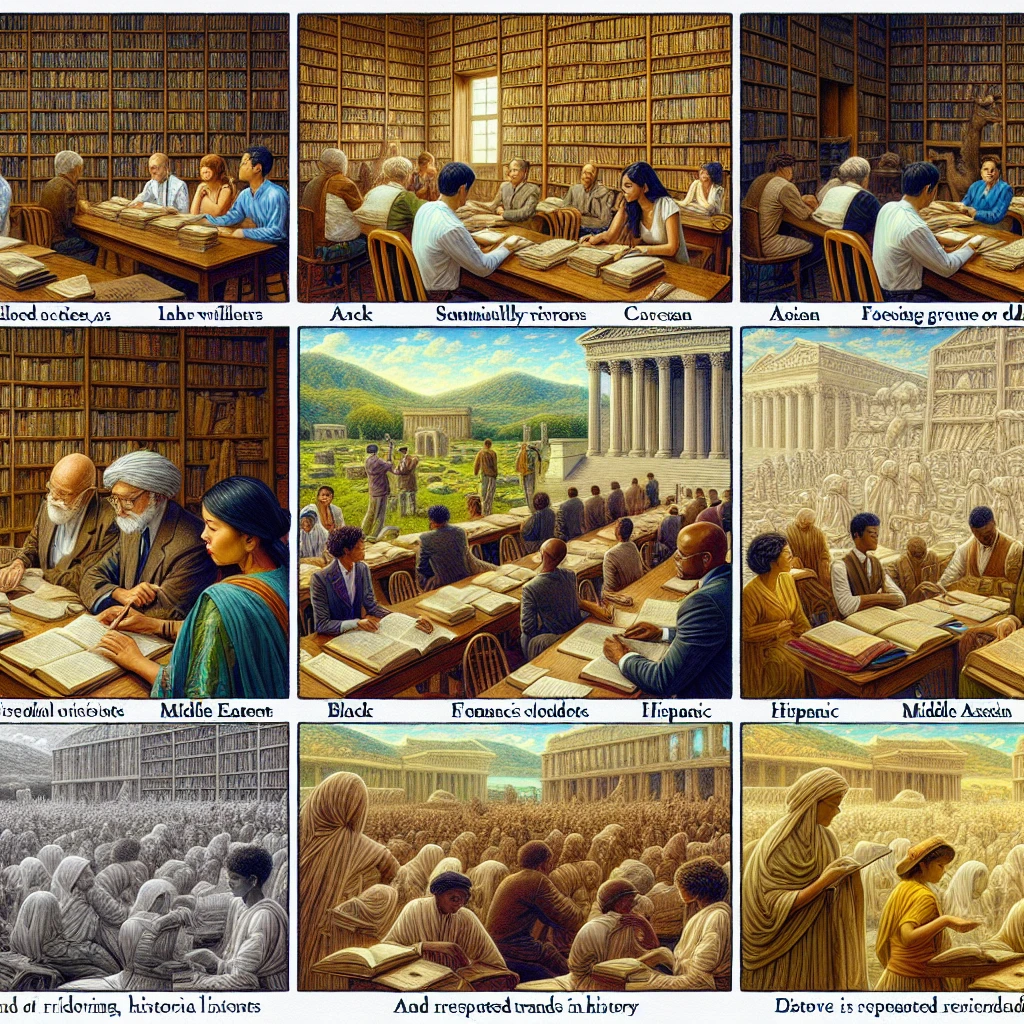How Can Historical Events Be Analyzed For Stronger Argument Essays


Historical events can be analyzed to strengthen an argument essay by providing evidence and context for the argument being made. By referencing specific historical events, the writer can support their thesis with real-world examples that help to strengthen their overall argument.
Additionally, analyzing historical events allows the writer to draw parallels, provide comparisons, and make connections to current events or societal issues, further reinforcing the validity of their argument. Incorporating historical events into an argument essay also adds depth and credibility to the writer’s position, demonstrating a well-rounded understanding of the topic at hand.
Understanding the historical context
Historical events play a vital role in strengthening an argument essay by providing a solid foundation of evidence and context. When crafting an argument, identifying relevant historical events can add credibility and depth to the discussion, making the argument more persuasive and compelling for the audience.
Identifying relevant historical events
When identifying historical events to strengthen an argument essay, it’s crucial to select events that directly relate to the topic at hand. By choosing events that have a clear connection to the argument, you can effectively illustrate the historical precedence and implications of the issue being discussed, reinforcing the argument’s validity and relevance.
Researching the background and context of the historical events
Researching the background and context of historical events involves delving into the intricacies surrounding the events, examining their causes, impact, and broader implications. By providing in-depth historical context, an argument essay can demonstrate a thorough understanding of the subject matter, showcasing the author’s expertise and bolstering the essay’s credibility.
Drawing parallels
Linking historical events to the central argument
Historical events can be linked to the central argument of an essay by drawing parallels between past occurrences and present situations. This involves identifying similar patterns, motives, and consequences that can strengthen the validity of the argument.
For instance, when discussing the impact of social injustice, drawing parallels between the civil rights movement and current societal issues provides a compelling historical foundation for the argument.
Identifying similarities between historical events and the essay’s argument
Identifying similarities between historical events and the essay’s argument involves recognizing common themes, outcomes, and implications. For example, if the essay argues for the importance of civil disobedience, drawing parallels to historical figures like Mahatma Gandhi and their role in influencing social change strengthens the argument’s credibility.
By showcasing how similar actions led to significant historical impacts, the essay establishes a solid foundation for its argument.
Analyzing the impact
Exploring the consequences of historical events
Historical events have far-reaching consequences that reverberate through time, shaping the course of societies, belief systems, and even individual lives. For example, the consequences of World War II not only transformed global politics but also led to significant advancements in technology and medicine.
These consequences are crucial to understanding the broader impact of historical events on human civilization.
Discussing the relevance of the historical events to the argument
When analyzing historical events to strengthen an argument essay, it’s essential to delve into their relevance to the specific argument at hand. For instance, when making a case for increased environmental regulations, one could draw on the historical consequences of industrialization and its impact on the environment.
By connecting historical events to the argument, it lends credibility and depth, providing a rich contextual foundation for the viewpoint being advocated.
Uncovering historical patterns
Historical events often reveal recurring themes that offer valuable insights for strengthening argument essays. For instance, the rise and fall of major empires depict the dynamic nature of power structures, providing historical evidence to support arguments on the instability of authority.
Additionally, military conflicts, such as Alexander the Great’s conquests and the World Wars, showcase the ripple effects of warfare on societies, adding depth to discussions on the impact of conflicts in argumentative essays.
Moreover, examples like the French and Russian Revolutions reflect the enduring presence of social and political upheavals throughout history, offering compelling evidence to fortify arguments related to societal transformation and resistance. These recurring themes in historical events provide a rich tapestry of evidence and narratives that can be harnessed to reinforce the depth and persuasiveness of argument essays, making the historical context an invaluable resource for writing compelling and substantiated arguments.
Incorporating historical perspectives
Utilizing different historical points of view, especially contrasting narratives from various sources, can enrich an argument essay by presenting a broader context. By incorporating diverse historical perspectives, the essay becomes more comprehensive and compelling, shedding light on multiple dimensions of the topic.
Additionally, infusing contrasting viewpoints infuses a richness that resonates with the reader, providing a well-rounded understanding of the historical context.
Discussing the implications of diverse historical perspectives on the argument essay is pivotal. It prompts critical analysis, enabling the writer to acknowledge the complexity of historical events and their interpretations.
This fosters a deeper understanding and fosters a robust argumentative structure, paving the way for a more convincing and influential essay.
| Pros | Cons |
|---|---|
| Enriches historical context | Potential for conflicting interpretations |
| Provides a well-rounded understanding | Requires meticulous research for accuracy |
| Increases the essay’s credibility | Demands attention to detail for coherent integration |
Drawing on historical evidence
Drawing on historical evidence for an argument essay involves using primary and secondary sources to provide a solid foundation for your arguments. Primary sources include original materials like letters, manuscripts, diaries, newspapers, photographs, and interviews, offering firsthand accounts of events.
On the other hand, secondary sources analyze, interpret, or summarize primary sources, providing expert perspectives and historical context to strengthen your arguments.
Using primary and secondary sources
In your argument essay, using primary sources can add authenticity and authority to your points, as they directly contribute to the understanding of historical events. For example, including excerpts from letters written during American independence discussions can emphasize the struggles and sentiments of the time.
Secondary sources, such as scholarly articles or historical analyses, provide critical insights and interpretations that bolster the credibility of your arguments by showcasing expert opinions.
Analyzing the credibility of historical evidence for the argument essay
When analyzing the credibility of historical evidence, it’s crucial to consider the origins, authorship, and contextual relevance. For instance, the reliability of a newspaper article from the Civil Rights Movement era may depend on the publication’s reputation and its alignment with historical accounts.
Additionally, evaluating the biases and perspectives inherent in primary and secondary sources ensures a balanced and informed approach to incorporating historical evidence into your argument essay.
| Benefits of Primary Sources | Benefits of Secondary Sources |
|---|---|
| Offer firsthand accounts | Provide expert insights |
| Emphasize authenticity | Offer critical interpretations |
Addressing counterarguments
Acknowledging opposing historical interpretations
When delving into historical events to strengthen an argument essay, it’s crucial to acknowledge opposing historical interpretations. By recognizing alternative viewpoints and differing analyses of historical events, it demonstrates a comprehensive understanding of the subject matter.
This acknowledgement adds depth and credibility to the argument presented, making it more robust and resistant to criticism.
Formulating responses to counterarguments using historical events
In crafting responses to counterarguments using historical events, it’s essential to leverage specific instances or patterns from history that contradict opposing viewpoints. For instance, citing historical events or figures that provide contrasting evidence or context can effectively strengthen the argument essay.
These responses should be formulated with precision, utilizing historical events as powerful tools to confront and discredit opposing interpretations, thereby fortifying the overall argument.
Examples of Formulating Responses Using Historical Events
| Historical Event | Counterargument | Formulated Response |
|---|---|---|
| World War II | Counterargument: WWII did not significantly impact global geopolitics. | Response: World War II reshaped global alliances, leading to the establishment of the United Nations and the Cold War. |
| Civil Rights Movement | Counterargument: The Civil Rights Movement was not influential. | Response: The Civil Rights Movement sparked legislative changes and societal progress, significantly impacting race relations and equality. |
By artfully acknowledging opposing historical interpretations and formulating precise responses using historical events, the argument essay gains depth and persuasive power. This approach lays the foundation for a compelling and well-supported perspective in historical analysis and interpretation.
Utilizing historical anecdotes and quotes
Incorporating personal stories from historical events
Incorporating personal stories from historical events can add a human touch to an argument essay. For instance, recounting the experiences of ordinary soldiers during the World War can evoke empathy and create a compelling narrative that supports the argument being made.
Integrating impactful quotes from historical figures to support the argument
Integrating impactful quotes from historical figures can add authority and depth to an argument essay. For example, quoting Abraham Lincoln’s famous words, “Government of the people, by the people, for the people,” can effectively emphasize the importance of democratic values in a modern political context.
Providing historical context for statistics
Historical background plays a crucial role in understanding statistical data, as it provides the context within which these statistics were gathered. For example, when analyzing historical events such as wars, economic crises, or social movements, statistical data can reveal important trends, patterns, and impacts on society.
Understanding the historical context behind statistical data helps us grasp the significance of these numbers and their implications for various arguments and discussions.
Demonstrating the significance of historical context in strengthening statistical evidence in an argument essay is essential for providing a well-rounded and informed perspective. By integrating historical context, one can effectively support arguments with concrete data that reflects the patterns and changes over time.
This not only adds depth and credibility to the essay but also enables the reader to comprehend the broader implications of the statistical evidence presented. Historical context essentially provides the foundation for a more compelling and comprehensive argument.
Incorporating historical examples
Using specific historical instances to illustrate key points can add a compelling layer of depth and relevance to an argument essay. By referencing specific historical events, readers can tangibly connect with the argument’s main points, making the essay more engaging and memorable.
Discussing how historical examples can enhance the argument essay
Historical examples can enhance the argument essay by providing real-world evidence and context that supports the writer’s stance. When historical events are meticulously analyzed and linked to the main argument, they serve as powerful supporting pillars, lending credibility and strength to the overall essay.
Leveraging historical facts
To enhance the credibility of an argument essay, leveraging verifiable historical facts is essential. By citing historical events supported by reliable sources such as nonfiction books, reputable websites, and verified historical data, the argument gains trustworthiness and authority.
For example, citing history books or digital archives from renowned institutions like the National Archives and Records Administration, Founders Online, or established scholars can significantly bolster the essay’s credibility.
Furthermore, demonstrating the relevance of historical facts to the argument is crucial for engaging the audience. By drawing parallels between past occurrences and the current topic, it becomes evident that historical events provide a solid framework for understanding present-day issues.
For instance, linking historical events such as the Industrial Revolution to contemporary technological advancements showcases the enduring impact of history and helps to substantiate the argument.
| Examples of Historical Facts | |
|---|---|
| Nonfiction books | – “A People’s History of the United States” by Howard Zinn |
| Reputable websites | – Founders Online, National Archives and Records Administration |
| Historical data | – Citing historical events such as the Industrial Revolution in an essay on technological advancements |
The use of verifiable historical facts and the demonstration of their relevance are powerful tools for strengthening an argument essay. By incorporating credible historical sources and drawing connections between historical events and contemporary topics, the essay gains authority and resonance, effectively reinforcing its argumentative stance.
Utilizing humor in historical references
Utilizing historical events in a lighthearted manner not only adds an entertaining element but also creates relatability. For instance, incorporating a humorous anecdote about a historical figure’s quirky behavior can humanize them, making the content more engaging.
By infusing historical events with humor, the argument essay becomes more lively and captivating, capturing the reader’s interest with a blend of education and entertainment.
Demonstrating how humor can make historical references more engaging in the argument essay involves cleverly intertwining comedic elements with serious historical context. One approach is to use satire to highlight absurdities in historical events or personalities, making the content amusing yet thought-provoking.
Additionally, employing allusions to historical events in a light-hearted and witty manner can seamlessly integrate humor into the text, fostering a deeper connection with the reader while enlivening the argument essay. Through such strategic incorporation of humor, historical references can be leveraged effectively to strengthen the overall impact of the essay, ensuring a memorable and compelling narrative.
Internal links to historical events
When crafting an argument essay, connecting different historical events within the essay can greatly strengthen the argument’s credibility. By weaving a narrative that links various historical occurrences, the argument gains depth and a sense of continuity.
For instance, connecting the abolition of slavery with the civil rights movement in the U. S. creates a powerful historical continuum that amplifies the argument for racial equality.
Empowering the argument through the interconnectedness of historical events allows for a more comprehensive understanding of the topic at hand. By drawing parallels and highlighting the cause-and-effect relationships between historical events, the argument gains a nuanced and multi-dimensional perspective.
For example, demonstrating how the Industrial Revolution paved the way for modern environmental challenges empowers the argument for sustainable development through historical context.
In essence, leveraging internal links to historical events in an argument essay serves to enrich the narrative and provide a richer understanding of the subject matter, ultimately bolstering the overall argument’s persuasiveness. This approach enables the audience to grasp the interconnectedness of historical events and see how they collectively contribute to the argument’s validity.
Debunking historical myths and misconceptions
Throughout history, many widely accepted beliefs have turned out to be misconceptions. Addressing these common misunderstandings is essential to gaining a more accurate understanding of historical events.
By debunking these myths, we strengthen the argument by providing accurate historical information, ensuring that our arguments are based on solid facts.
Addressing common misunderstandings of historical events
One prevalent myth is that Ben Franklin discovered electricity. In reality, electricity was already known and studied for centuries before Franklin’s time.
Similarly, the notion that the Great Wall of China is visible from the moon is a misconception. The truth is that the wall is not visible from space with the naked eye.
These examples illustrate the importance of addressing common historical misunderstandings.
Strengthening the argument by providing accurate historical information
By dispelling misconceptions, we can strengthen our arguments with accurate historical information. For instance, understanding that slavery existed in all 13 British Colonies challenges the misconception that it was confined to the South.
Similarly, debunking the myth that the U. S. is a pure democracy sheds light on the nation’s system of government. By providing accurate historical information, we can fortify our arguments with irrefutable facts.
| Misconception | Correct Information |
|---|---|
| Ben Franklin discovered electricity | Electricity was already known for centuries. |
| The Great Wall of China is visible from the moon | The wall is not visible from space with the naked eye |
| Slavery was confined to the South | Slavery existed in all 13 British Colonies |
| The U. S. is a pure democracy | The U. S. has elements of a monarchy and aristocracy |
These examples highlight how debunking historical myths contributes to a more robust argument by providing accurate and factual historical information.
Evoking emotional responses with historical events
Emotions are an inherent part of human existence, deeply intertwined with historical events. When crafting an argument essay, utilizing historical events to evoke strong emotional reactions can significantly impact the reader.
For instance, recounting the harrowing tales of World War II can elicit profound feelings of empathy and sorrow, thereby strengthening the emotional appeal of the essay.
Furthermore, discussing the power of emotional appeal when incorporating historical events in an argument essay can lend credibility and resonance to the author’s stance. By illustrating the human stories behind significant historical events, such as the Civil Rights Movement or the Suffragette movement, the essay can harness the emotive power of these events to bolster its argument.
Incorporating historical events to stimulate emotional responses is akin to infusing the essay with life force, steering it away from being a mere enumeration of facts and into a compelling narrative. Such emotional resonance not only captivates the audience but also underscores the author’s conviction, making the argument more persuasive and memorable.
| Examples of Historical Events | Emotional Impact |
|---|---|
| Civil Rights Movement | Empathy, Resilience |
| Suffragette Movement | Empowerment, Determination |
| World War II | Sorrow, Solidarity |
By weaving historical events into an argument essay, authors can tap into the reservoir of emotions associated with these events, heightening the impact and effectiveness of their persuasive endeavors. Therefore, the adept incorporation of historical events can undoubtedly serve as a potent tool in strengthening the emotional appeal of an argument essay.
Remember, historical events serve as the emotional compass of our collective consciousness, guiding the sentiments and convictions of the readers as they journey through the narrative of the argument essay. So, let’s harness the emotional power of history to invigorate our essays and ignite the passionate response we intend to evoke.
Recommended Amazon Products for Analyzing Historical Events in Argument Essays
Here’s a curated list of products that can help you in analyzing historical events to strengthen an argument essay. These recommendations are based on their relevance, accessibility, and customer ratings.
1. Kindle Paperwhite
The Kindle Paperwhite is a convenient tool for accessing a wide range of historical texts and references, allowing for in-depth research and analysis. Its built-in lighting and adjustable display make reading historical documents comfortable and efficient.
It is highly rated for its ease of use and long battery life.
| Pros | Cons |
|---|---|
| High-resolution display | Not suitable for color-intensive documents |
| Long battery life | Price may be higher than other e-readers |
| Waterproof design | Limited to Amazon’s e-book ecosystem |
2. The AP® European History premium edition
This comprehensive review book provides detailed insights into European history, making it a valuable resource for understanding historical contexts. It features practice tests, interactive vocabulary quizzes, and in-depth content reviews.
The product has received favorable reviews from students and teachers.
| Pros | Cons |
|---|---|
| Extensive content coverage | May be overwhelming for beginners |
| Interactive study resources | Larger physical size may be less portable |
| Well-organized review structure | Premium price compared to standard textbooks |
3. Historical Atlas of the World
The Historical Atlas of the World offers a detailed visual representation of historical events, providing valuable context for argument essays. It includes maps, timelines, and narratives covering significant events throughout history.
This resource has been praised for its rich content and accessibility.
| Pros | Cons |
|---|---|
| Comprehensive historical coverage | Large physical size may require ample space for storage |
| Engaging visual representations | May not include the very latest events |
| Accessible format for quick references | Higher price compared to basic history books |
4. “A People’s History of the United States” by Howard Zinn
This influential book offers a unique perspective on American history, focusing on marginalized voices and social movements. It presents historical events in a compelling narrative that can be used to enhance the depth of an argument essay.
The book has garnered widespread acclaim for its thought-provoking content.
| Pros | Cons |
|---|---|
| Emphasis on diverse historical perspectives | Dense content may require thorough reading |
| Engaging storytelling style | Some controversial viewpoints may challenge traditional narratives |
| Thought-provoking content | Not suitable for those seeking a traditional history textbook |
5. “Guns, Germs, and Steel: The Fates of Human Societies” by Jared Diamond
This Pulitzer Prize-winning book explores the impact of geography and historical events on the development of human societies. It offers a compelling analysis that can be used to strengthen arguments in essays related to historical contexts.
The book is highly regarded for its interdisciplinary approach and engaging writing.
| Pros | Cons |
|---|---|
| Interdisciplinary insights | Complex concepts may require focused reading |
| Thought-provoking content | Detailed analysis may not suit casual readers |
| Engaging narrative | May challenge conventional historical perspectives |
Top Recommended Product for Analyzing Historical Events in Argument Essays
If you’re looking for the best solution for analyzing historical events in argument essays, we highly recommend the Kindle Paperwhite. You can find the Kindle Paperwhite on Amazon by searching for “Kindle Paperwhite”.
Here’s why:
The Kindle Paperwhite offers a convenient platform for accessing a wide range of historical texts and references. Its high-resolution display, long battery life, and waterproof design make it an ideal tool for in-depth research and analysis. Ready to improve your historical analysis? Check out the Kindle Paperwhite today for the best results!


Conclusion
Historical events can be analyzed to strengthen an argument essay by providing relevant and persuasive evidence to support the argument. By examining historical events, writers can draw parallels and comparisons to the current topic, showcasing the significance and implications of the argument.
This not only adds depth and credibility to the essay but also helps in persuading the audience of the validity of the argument.
Furthermore, analyzing historical events allows for a comprehensive understanding of the context and background surrounding the argument. By delving into the historical perspectives, writers can present a well-rounded viewpoint and consider the long-term impact of the argument.
This analytical approach not only strengthens the essay but also demonstrates the writer’s ability to critically evaluate and interpret historical data to support their argument effectively.
Moreover, historical events can be analyzed to strengthen an argument essay by highlighting patterns and trends over time. This approach allows writers to demonstrate a thorough analysis of historical data and connect it to the current situation, ultimately enhancing the argument’s relevance and significance.
By uncovering historical patterns, writers can present a compelling case for their argument, showcasing a deep understanding of the subject matter and reinforcing the essay’s overall impact.




